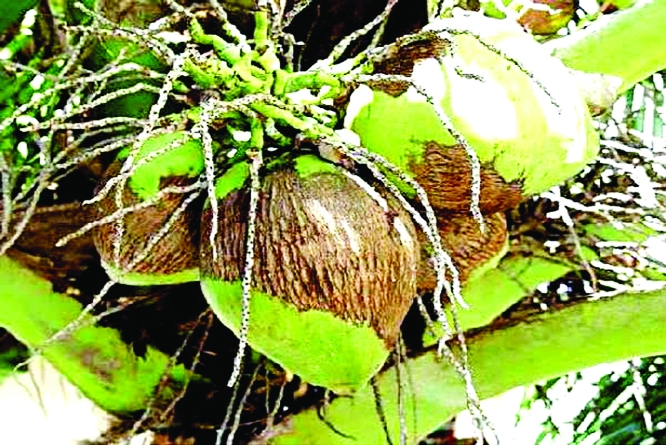
Our Correspondent :
The horror impacts of climate change have begun to be felt in the agriculture of Ishwardi, which is rich in agriculture.
The effects of climate change are changing the quality of crops and the amount of production.
New diseases and insect infestations have already appeared in various vegetables including Bombay litchi, boro paddy, wheat, maize, coconut, peyara, borai due to some other reasons including hot in the evening and cold in the last night. As a result, even by increasing the application of pesticides and fertilizers in agriculture, the desired results are not being obtained. The information was obtained by talking to Ishwardi Upazila Agriculture Office, farmers and agriculture stakeholders.
16 farmers of Ishwardi have won national medals for their significant contribution in agriculture. The farmers of Ishwardi are now extremely worried as the temperature rise, climate and normal weather conditions are abnormal and unstable, said Siddiqur Rahman Moyez alias Cool Moyez, President of Bangladesh Krishak Unnayan Society and National Medal winning farmer. “As the days go by, new insects and diseases are appearing due to climate change,” he said. Only one-third of the Bombay litchi trees have buds in mid-January as temperatures have dropped and winter temperatures have risen. In recent times, due to bad winds and blast disease, bora paddy has become sticky. He said that the maximum temperature during flowering or pollination of rice is tolerable up to 35 degrees Celsius.
On Wednesday (April 14), the temperature in Ishwardi rose to 36.5 degrees Celsius. The meteorological office said moderate heat waves were prevailing. This time the drought situation in this area has started long before the time. No rain. Sesame, mug, woven aus and vegetables are being delayed due to drought. This situation is also due to climate change, said the Ishwardi Agriculture Office.
Ishwardi Upazila Agriculture Officer agriculturist Abdul Latif said climate change has started to have a negative impact on agriculture in Ishwardi. New diseases, pests and insects have threatened to change the quality and yield of crops. In the case of maize, there is an outbreak of ‘fruit armium’ insects and ‘blast’ disease in wheat. He advised the farmers to use new tolerant variety ‘Barigam-33’ to prevent blast disease of wheat.
Abdul Latif, an agronomist, also said that a new ‘Rabaz Spilling Fly’ insect has arrived on the coconut tree. This insect sucks the sap from the leaves and excretes honeydew. The leaves are turning black due to the growth of ‘Shutimul Mushrak’. That is why the process of ‘Falak Synthesis’ is being hampered. Trees cannot produce food. As a result, the coconut tree is weakening and dying. The same problem has been seen in guava and banana trees, he said.
In order to keep Ishwardi’s agriculture in a sustainable position in the face of climate change, medal-winning farmer Abdur Bari alias Kopi Bari has suggested emphasis on developing tolerant varieties. At the same time, care should be taken to ensure that all agricultural inputs and latest agricultural technology are readily available to the farmers. “Otherwise, it will have a long-term effect on public life if we do not take remedial action now,” he said.

